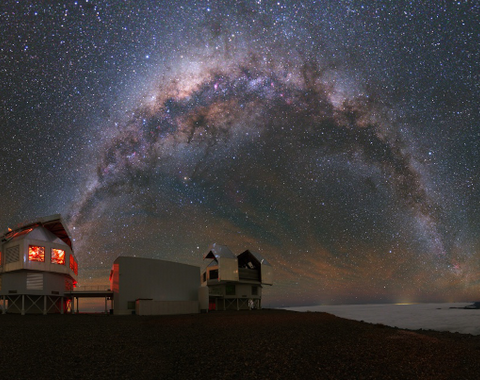2020 Astronomy Lecture Series

Each year the Observatories organizes a series of public lectures on current astronomical topics. These lectures are given by astronomers from the Carnegie Observatories as well as other research institutions. The lectures are geared to the general public and are free.
2020 Season
Monday evenings: February 24, March 23, April 13 and May 18.
AT THE HUNTINGTON LIBRARY, ART COLLECTIONS, AND BOTANICAL GARDENS
1151 Oxford Road, San Marino
All Lectures are in Rothenberg Auditorium. The simulcast room adjacent to the Auditorium will also accommodate overflow attendance. Directions can be found here.
The lectures are free. Because seating is limited, however, reservations are required for each lecture through Eventbrite (links below). Additionally, the lectures will be streamed live through Livestream and simultaneously on our Facebook CarnegieAstro page. For information, please call 626-304-0250.
Doors open at 6:45 p.m. Each Lecture will be preceded by a brief musical performance by students from The Colburn School starting at 7:00 p.m. Lectures start at 7:30 p.m. Light refreshments will be available.
Lecture Schedule
Dr. John Mulchaey
Director, Carnegie Observatories
One hundred years ago, Carnegie Observatories’ founder George Ellery Hale convened The Great Debate, in which leading astronomers of the day argued whether spiral nebulae were inside the Milky Way or beyond it. The latter was confirmed by Carnegie astronomer Edwin Hubble, using his observations at Mt. Wilson to discover the Universe as we now know it to be. Today, astronomy is enmeshed in many “great debates,” including the nature of dark matter and dark energy, the expansion rate of the Universe, and the formation of planetary systems. Dr. Mulchaey will discuss current controversies in these areas, and will describe how research in the coming decade may finally resolve some of astronomy’s biggest mysteries.
Watch recording
Dr. K. Decker French
Hubble Fellow, Carnegie Observatories
The sky is full of cosmic explosions and stars torn apart by black holes, which are only the faintest flashes of starlight by the time they reach the Earth. Astronomy in the 2020s will be revolutionized by new sensitive surveys to map these exciting transient and time-varying phenomenon. Dr. French will lead us through the new astrophysics that can be uncovered with time-sensitive observations in the next decade.
Dr. Solange V. Ramirez
Carnegie Astronomer and SDSS-V Project Manager
For the past 20 years, the Sloan Digital Sky Survey — a collaboration among astronomers worldwide — has been working to gather spectral and photometric data covering one third of the sky and analyzing millions of individual objects. The making of every telescope and its instrumentation requires extraordinary creativity, innovation, and expertise, and the Sloan Digital Sky Survey has pioneered the development of novel equipment designed to address many crucial astronomical questions; the resulting information is providing a rich legacy for future research. In this lecture, Dr. Ramirez will describe how SDSS-V, the latest phase of this massive project, is designing and building the instrumentation that will reveal information about the universe in unprecedented detail.
Watch recordingDr. Chris Burns
Research Associate, Carnegie Observatories
Nearly 100 years ago, Carnegie astronomer Edwin Hubble made two truly revolutionary discoveries. First, that our Milky Way was only one of many galaxies in a vast universe; and second, that the farther these galaxies were from us, the faster they appeared to be moving away. The ratio between these speeds and distances, which we now call the Hubble Constant, is a fundamental quantity that sets the scale for the size and age of the entire cosmos. For decades, its precise value has been a source of contention among astronomers. Even today, with the most powerful telescopes at our disposal, tension between different groups remains. Dr. Burns will cover the history of Hubble’s troublesome Constant and how we are trying to pin it down.
Watch recording